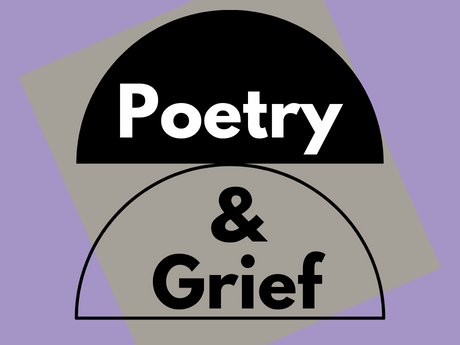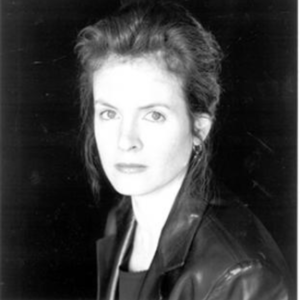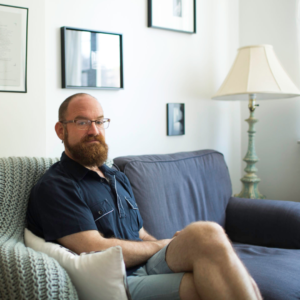Poetry & Grief
Brian Teare on Tory Dent’s “R.I.P., My Love”

R.I.P., My Love
Let us be apart then like the panoptical chambers in ICU
patient X and patient Y, our names Magic Markered hurriedly on cardboard
and taped pell-mell to the sliding glass doors, "Mary", "Donald", "Tory";
an indication that our presence there would prove beyond temporary, like snow flurry.
Our health might be regained if aggressive medical action were taken, or despite
these best efforts, lost like missing children in the brambles of poor fortune.
The suffering of another I can only envision through the mimesis of my own,
the alarming monitor next door in lieu of a heartbeat signifying cardiac arrest,
prompts a scurry of interns and nurses, their urgent footsteps to which
I listen, inert and prostrate, as if subject to the ground tremors of
a herd of buffalo or horses, just a blur in the parched and postnuclear distance.
I listen, perhaps the way the wounded will listen to the continuing war,
so different sounding than before, the assault of noise now deflected against
consciousness rather than serving as motivation for patriotism and targets.
Like fistfuls of dirt loaded with pebbles and rocks thrown at my front door,
I knew that the footsteps would soon be running to me also.
The blood pressure cuff swaddled around my arm pumped in its diastolic state
independently like an iced organ ready for transplant
as I witnessed with one circular rove of my eyes my body now dissected
into television sets, like one of those asymmetrical structures
that serves as a model for a molecular unity in elementary science classes.
And the plastic bags of IV fluids that hung above me, a Miró-like mobile or iconic toy
for an infant's amusement, measured the passing of time by virtue of their depletion.
Sometimes I could count almost five and then seven swinging vaguely above me at 4 a.m.
I remember the first, hand-held high above me when I arrived via ambulance at the ER, the
gurney accelerating as a voice exclaims on the color of my hands, "They're blue!".
Another voice (deeper) virtually yells out into the chaos that she can't get a pulse.
Several pairs of scissors begin simultaneously to cut off my clothes, their shears
working their way upward like army ants from pant cuff and shirtsleeve,
a formulaic move for the ER staff which, despite its routine, still retains
a sense of impromptu in the hurriedness of the cutting both deft and crude,
in the sound of their increased breathing, of their efforts intensified by my blood
pressure dropping, the numbers shouted out as if into night fog and ocean.
It's not a lack of professionalism but the wager of emotional investment that I feel.
One attendant, losing her aplomb for a moment, can't contain herself from remarking
(as if I'm already post-mortem) on what a great bra I have;
"Stretch lace demi-cup, Victoria's Secret," I respond politely in my head.
In turn, when they put the oxygen tube into my nose I thought immediately
of Ali McGraw on her death bed in Love Story and how good she looked in one.
And then the catheter where I pissed continually into a bottle like a paraplegic
let me in on the male fear of castration,
my focus centered entirely on that tube, its vulnerable rigging
which I held onto tenderly throughout the night like something dying
against my thigh or something birthing. I held on though the IV in my forearm
overextended with a kind of pleading, the needle hooked deep into a mainstream vein
the way in deep sea fishing lines are cast into the darkest water,
my body thrashing about in the riverweed of its fluids.
The translucent infrastructure of IVs and oxygen tubes superimposed itself upon me
like a body double, more virulent and cold, like Leda pinned and broken by her swan,
like the abandoned and organ-failed regarding its superior soul ascend.
So completely and successfully reconfigured within its technological construct
my body proper no longer existed, my vital signs highlighted in neon
preceded the spiraling vortex of my interiority,
the part of me people will say later that that's what they loved
when they roam about in the cramped rare book library of their memory
for a couple of minutes and think of "Tory".
Movement can only be accounted only in shadows, Virilio informs us,
the reconciliation of oneself in one's disappearance.
An anachronistic sundial, I turn my profile
and the fluorescence falls unfractured, unmediated onto the postmodern tenebrism
of absence against absence, my quickened inhalations against my backless gown.
My love for you, my love, for my friends, untethers and floats,
snaps apart and off me like the IV tubes and monitor wires
the flailed arms of an octopus unfolding without gravity,
as I reach up in a Frankensteinian effort to shut off my monitors,
the constant alarming of the human prototype my own body keeps rejecting,
while death moves closer, a benign presence.
It stands respectfully just outside the perimeters of my life
and adjusts itself the way the supervising nurse did the monitor perimeters
to suit my declining vital signs so I could get some sleep.
I felt a relationship with death, a communication, it was more familiar
than I ever imagined, what I had always returned to as the sign of me, the self
we attribute to the mysterious and perfectly ordered Romantic notion of origin.
What I'm trying to say is that it was not foreign. It was not foreign,
but it was not a homecoming either.
There was no god, no other land, no beyond;
no amber, no amethyst, no avatar.
But there was a suspension, there was an adieu to recognition
to the shoes of those I love, like Van Gogh's, a pair but alone
the voices of loved ones, their tones, their intonations, like circulation,
close-circuited but effective.
There was a listless but clear-thinking comfort that into my own eyes
I would go, although not "into" in the Bachelardian sense
which implies diminishment; there was none of that.
It was just the opposite: expansion but without a pioneer's vision.
What we regard as the "self" extended itself, but I wouldn't say in a winged way,
over the Bosch-like landscape of brutal interactions
and physical pain and car alarms and the eternal drilling of disappointment
the exigent descendence of everyday that every day you peer down or up
its daunting staircase, nauseous with vertigo
gathering like straw the rudimentary characteristics of courage, gumption, innovation
and faking it to the hilt like a hilarious onslaught of sham orgasms.
Transcendence might be the term Emerson would lend it.
What I'm trying to say is that it wasn't lonely.
From HIV, Mon Amour by Tory Dent, copyright © 1999 by Tory Dent. Reprinted with permission of the publisher, Sheep Meadow Press.
Brian Teare on Tory Dent's "R.I.P., My Love"
I was on the floor of a used bookstore in Bloomington, Indiana when I read Tory Dent’s first book, What Silence Equals. It was 1997; I was 23. Like many gay men of my generation, I’d spent my adolescence living in a culture that conflated queerness with the “righteous” punishment of HIV/AIDS while I also participated in a lively subculture of friends, lovers, elders, and comrades deeply impacted by the shared reality of the virus. Those were years of shame, stigma, grief, anger, confusion, and fear—and of immense resourcefulness, camaraderie, creativity, and resistance. My memories are braided through with the poetry we wrote then. But it is Dent’s rangy, grief-struck, raging, tender lines that return to me the most often now.
I suspect that most folks in the US have forgotten the feelings and the facts of the years before effective treatments for HIV/AIDS. For some of us, the first year of COVID brought that time right back. Not just the fear and anxiety of a viral pandemic, the egregious political and public health failures, the rise in hate crimes and violent rhetoric, and the figurative and literal isolation. For those of us raised in conservative faiths, for those of us who left them behind out of necessity, and for those of us who were raised secular, COVID also brought back the question of how to reckon with and hold the experiences of grief, sickness, mortality, and mass death. That’s the work Dent does in her second and third books, HIV, Mon Amour and Black Milk, the former a harrowing document of nearly mortal illness, the latter a poet and atheist’s reckoning with dying and death.
But Dent first begins writing her atheist’s relationship with death in HIV, Mon Amour. She does this most persuasively in “RIP, My Love,” an unflinching report of a medical emergency that leads Dent so near to death that she can claim it “was more familiar / than I ever imagined.” But the poem is also necessarily defamiliarizing, its highly medicalized speaker trapped inside “a body double” of equipment, “the translucent infrastructure of IVs and oxygen tubes superimposed…upon me.” Her ironic self-consciousness hails us from the get-go, in a tip of the hat to the first line of T.S. Eliot’s “The Love Song of J. Alfred Prufrock”—“Let us go then, you and I.” Instead of inviting the reader into a chummy intimacy, however, Dent invites the reader into mutual alienation—“Let us be apart then like the panoptical chambers in ICU.” She then sends up Eliot’s infamous simile—“the evening is spread out against the sky / Like a patient etherized upon a table”—by introducing a speaker who is not like a patient but rather is one—and not an etherized patient either, but one “inert and prostrate” and incredibly alive to her dire situation.
The ironic citationality of the poem’s opening and its subsequent hyper-intellectualization of embodied experience allow the poem’s second half—its frank, unsettling meditation on death’s closeness—to land with such force. The final line feels especially unguarded, its surprising insight a product of lived experience. As much as I love the directness of that final line, I also love the way Dent’s poems resolutely resist ease. They employ dense, complex sentences broken across long lines that allow her voice to lecture and hector the reader, to go flat or even vatic, before veering into chatty intimacy and urgent anecdote. The poems also put Dent’s learnedness to work: HIV, Mon Amour riffs on Alain Resnais’s and Marguerite Duras’s film Hiroshima Mon Amour in the same way that Black Milk cites Paul Celan’s “Todesfuge.” These intertextual relations place Dent’s poems in conversation with some of the most urgent work made in the wake of the wars, genocides, and collective traumas of the twentieth century. At its best, Dent’s poetry is their equal, and just as unique.
“Everybody Loves a Winner,” Dent quips bitterly in the title of another poem from HIV, Mon Amour, following with the line, “But when you lose it’s only you.” In the context of ACT UP and the many passionate activist and artistic voices of the time, this line strikes me as both true and untrue, the way, before antiretrovirals, waiting in the clinic with others for HIV test results was both a shared and a totally individual experience. The ultimate tragedy for Dent was that clinical trials for early antiretrovirals didn’t include cisgender women, and that these life-saving medications weren’t effective for her. She lived with HIV for seventeen years, and with AIDS for nine of them, enduring multiple grueling hospitalizations before her death in 2005. In the years before that, her unmistakable, ferocious voice cut through the din and bullshit surrounding HIV/AIDS. It spoke in a book and its gorgeous force pushed me to the floor. I’ve been listening ever since. Like Dent, what I’m trying to say is that it isn’t lonely.



